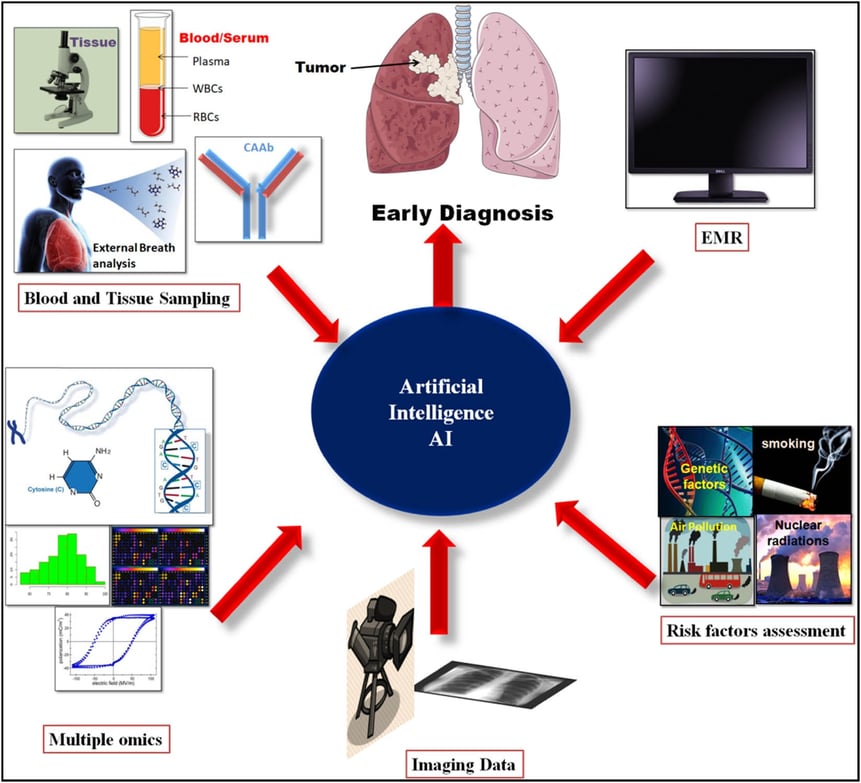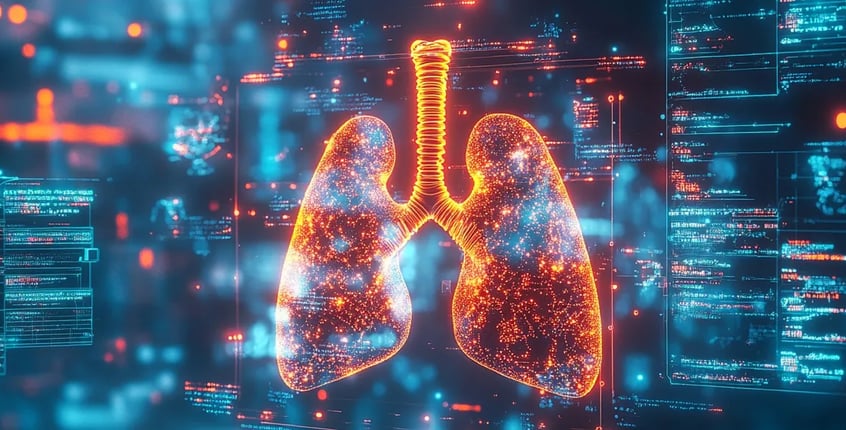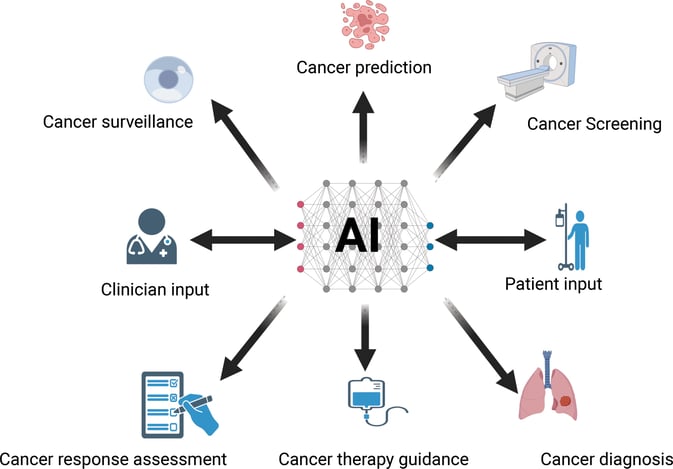AI Solutions for Lung Cancer Detection
In recent years, Artificial Intelligence (AI) has emerged as a powerful tool in medical imaging, particularly in the detection and diagnosis of lung cancer. As one of the most common and deadly cancers worldwide, early and accurate detection of lung cancer is crucial for improving patient outcomes. AI-powered solutions are transforming the way healthcare professionals approach lung cancer detection by offering faster, more accurate, and reliable results.


How AI Improves Lung Cancer Detection:
Enhanced Image Analysis: AI algorithms, especially deep learning models, can analyze X-rays, CT scans, and MRI images at a level of detail that human doctors may miss. These models are trained on vast datasets to identify subtle patterns in medical images, such as tumors or nodules, that could be indicative of lung cancer.
Early Detection and Screening: AI can assist in the early detection of lung cancer by identifying abnormal growths in the lungs at an early stage, even before symptoms appear. This allows for prompt intervention and increases the chances of successful treatment.
Reducing Human Error: While radiologists are highly skilled, human error can still occur, especially when reviewing large volumes of complex images. AI systems can help reduce these errors by providing consistent and objective assessments of medical images.
Automation and Speed: AI-driven solutions automate the analysis process, enabling healthcare providers to interpret results faster. This is especially valuable in busy clinical settings, as AI can quickly provide radiologists with valuable insights, saving time and improving workflow efficiency.
Predictive Analytics: AI tools can not only identify existing tumors but also predict the risk of lung cancer progression. By analyzing various factors such as size, shape, and growth patterns of nodules, AI can assess the likelihood of malignancy and help doctors make more informed decisions.


AI Tools Leading the Way in Lung Cancer Detection:
Google Health's AI Model: Google Health has developed an AI model that analyzes chest X-rays to detect lung cancer with remarkable accuracy. In studies, it has demonstrated the ability to identify lung cancer as well as, or even better than, experienced radiologists.
Zebra Medical Vision: This company provides AI-powered radiology solutions, including tools for detecting lung cancer through chest CT scans. Their AI engine is trained to detect early-stage cancers and other abnormalities in medical images.
IBM Watson Health: IBM's Watson Health platform uses AI to analyze medical images and assist in diagnosing lung cancer. It integrates clinical data to enhance decision-making, offering personalized treatment recommendations based on AI-driven insights.
VUNO Med-Lung: This AI solution is designed to help radiologists detect lung cancer through CT scan analysis. VUNO Med-Lung uses deep learning algorithms to identify lung nodules and assess their potential risk of malignancy.


Benefits of AI in Lung Cancer Detection:
Increased Accuracy: AI models trained on large datasets of medical images can detect even the smallest and most subtle abnormalities, improving diagnostic accuracy.
Early Detection: With AI's ability to analyze images quickly, lung cancer can be detected in its early stages, allowing for earlier intervention and better treatment outcomes.
Improved Efficiency: By automating the analysis of medical images, AI reduces the workload on radiologists, allowing them to focus on more complex cases and speeding up the diagnostic process.
Cost-Effective: AI solutions have the potential to lower healthcare costs by reducing the need for repeated tests and enabling more efficient use of healthcare resources.


